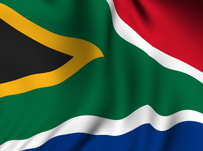Focus on Afrikaans
Monday, 4th January 2010

Afrikaans is a West Germanic language related to Dutch, German and English and spoken mainly in South Africa and Namibia.
There are also significant numbers of Afrikaans speakers in many other countries, including Argentina, Australia, New Zealand, Canada, the UK, the USA, the Netherlands, Swaziland, Lesotho and Zimbabwe. An estimated 10 million people speak Afrikaans as their first or second language, and several million more have a basic knowledge of the language.
Afrikaans developed from the Dutch spoken by people from the Netherlands who settled on the Cape of Good Hope in the 17th and 18th centuries. The language was originally called ‘Cape Dutch’ and later ‘African Dutch’ and was seen as a dialect or slang version of Dutch. During the second half of the 19th century texts were beginning to appear in Afrikaans, including the first grammar books and dictionaries in 1875. Only in 1925 was it recognised as a language in its own right, and it became an official language of South Africa, along with English. In 1996 the new post-apartheid constitution named Afrikaans as one of the 11 official languages of South Africa.
Afrikaans grammar has become simplified in comparison with that of Dutch, the spelling has become more like the pronunciation, and the language has also been influenced by and absorbed vocabulary from Bantu and Khoisan languages such as Nama, Zulu and Xhosa, as well as languages such as Portuguese, French, German and Malay. However about 85% of Afrikaans vocabulary is still similar to Dutch, and speakers of each language can understand one another fairly well, though it can take a while for Dutch speakers to become accustomed to Afrikaans.
Afrikaans is used as a medium of instruction in schools, on TV and radio, in newspapers and other publications, in films and music, and in government.
Here are some useful phrases in Afrikaans:
Haai / Hallo – Hi
Goeiemôre – Good morning
Goeienaand – Good evening
Totsiens – Goodbye / See you
Hoe gaan dit met u? – How are you?
Goed, dankie, En u? – Fine, thanks. And you?
Asseblief – Please
Dankie – Thanks
Ek begryp nie dit nie! – I don’t understand
Praat u Engels? – Do you speak English?
Gesëende Kersfees – Merry Christmas
Gelukkige Nuwe Jaar – Happy New Year
Tags: afrikaans, dutch, language, languages, south africa, english
Posted by Simon Ager 2010-01 under Experience Cultures,
Permalink

Posted by billabong on 04/27 at 06:19 PM
I am English so this is great but I would introduce how to learn afrikaans and teach people how to speak the language!But it's great